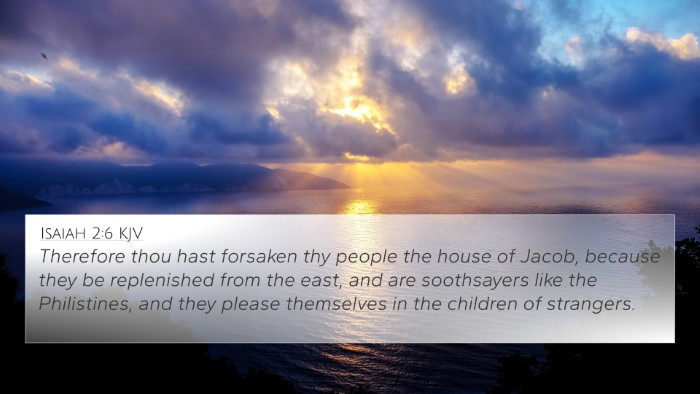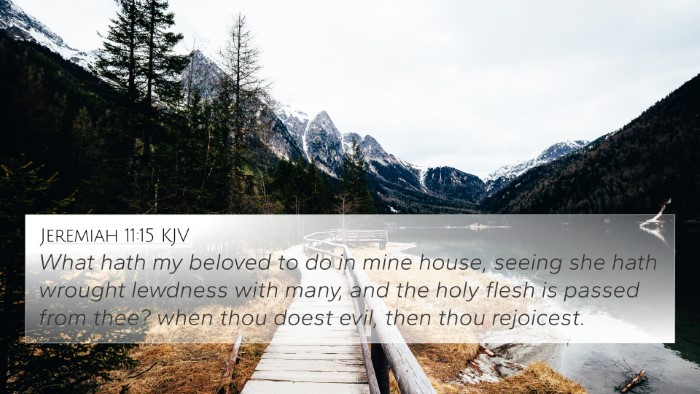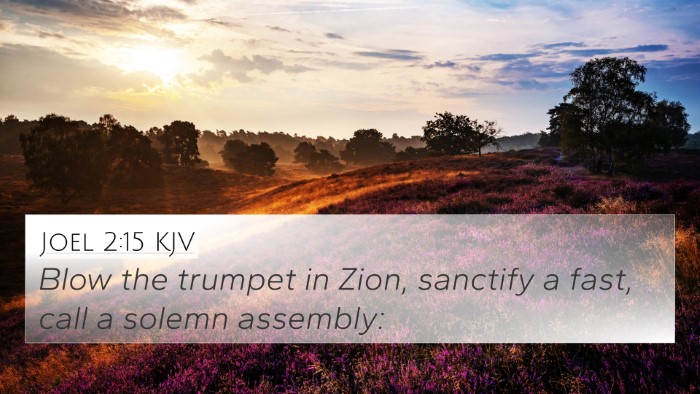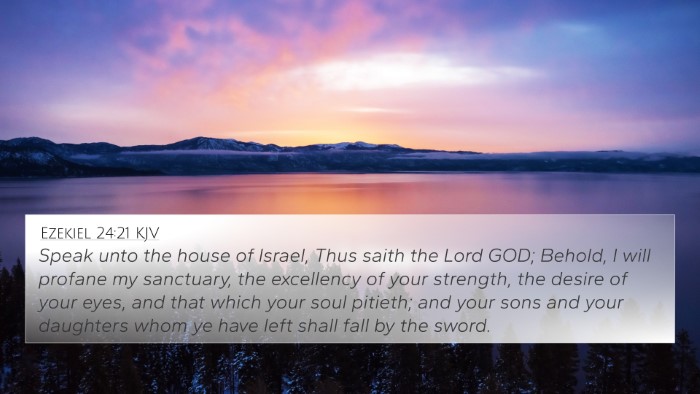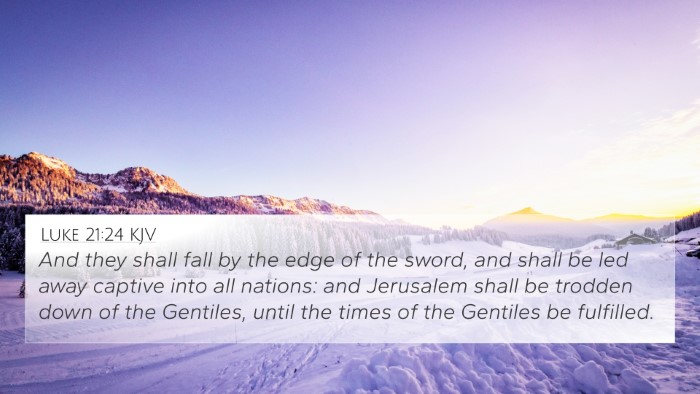Bible Verse Meaning: Jeremiah 12:7
Jeremiah 12:7 (KJV): "I have forsaken mine house, I have left mine heritage; I have given the dearly beloved of my soul into the hand of her enemies."
In this verse, the Lord expresses deep sorrow and abandonment regarding His people and heritage. This can be understood through various public domain commentaries, which offer insights into the emotional and spiritual turmoil inherent in these words. The prophets often spoke of God's feelings towards His people, and in this case, Jeremiah is revealing a profound sense of loss.
Contextual Analysis
Historical Background: Jeremiah was a prophet during a turbulent time for Israel, where the people faced imminent threats from surrounding nations and the consequences of their sins. The abandonment mentioned in this verse refers to the figurative ‘house’ of the Lord, essentially the nation of Israel, which had turned away from Him.
Spiritual Implications: Matthew Henry reflects on how God feels forsaken by His people when they turn to sin. He emphasizes that this abandonment is not a sudden act of God but the culmination of Israel's disobedience and rebellion against divine statutes.
Commentary Insights
- Albert Barnes: He notes that the expression of forsaking one's heritage indicates a complete withdrawal of support. God’s people are likened to a beloved but wayward child, and this serves as a harsh reminder of the consequences of sin.
- Adam Clarke: He elaborates on the psychological state of God as a loving parent forced to let go of a rebellious child. Clarke suggests that this sorrow depicts the tension between divine justice and divine love.
Cross-References
This verse can be linked to several other biblical passages that reflect similar themes of abandonment, sorrow, and divine lament. Here are 10 Bible cross-references that illustrate the connections between these scriptures:
- Lamentations 2:7: “The Lord hath cast off His altar, He hath abhorred His sanctuary.”
- Ezekiel 22:30: “And I sought for a man among them, that should make up the hedge, and stand in the gap before me for the land.”
- Hosea 1:9: “Then said God, Call his name Loammi: for ye are not my people, and I will not be your God.”
- Matthew 23:37: “O Jerusalem, Jerusalem, thou that killest the prophets, and stonest them which are sent unto thee!”
- Romans 11:1: “I say then, Hath God cast away his people? God forbid.”
- Isaiah 54:7: “For a small moment have I forsaken thee; but with great mercies will I gather thee.”
- John 1:11: “He came unto his own, and his own received him not.”
- Micah 3:4: “Then shall they cry unto the Lord, but he will not hear them.”
- Psalm 27:9: “Hide not thy face far from me; put not thy servant away in anger.”
- Hebrews 13:5: “For he hath said, I will never leave thee, nor forsake thee.”
Thematic Connections
The themes of abandonment and divine love recur throughout the Bible. The emotional intensity of Jeremiah 12:7 resonates with God's feelings toward His people, showcasing how divine justice intertwines with divine grace. This verse serves as a poignant reminder for believers to remain steadfast in faith to avoid such abandonment.
As you delve into these connections between Bible verses, it is essential to explore tools such as a Bible concordance, which can aid in discovering thematic Bible verse connections. Utilizing a bible cross-reference guide will enhance your understanding of the complex relationships between these scriptures and the overarching narrative of scripture.
Applying Cross-Referencing Techniques
To effectively engage with the scripture and its themes, consider these methods:
- Identify Themes: Look for central themes in various books of the Bible that correspond with Jeremiah 12:7.
- Use Cross-Referencing Tools: Examine resources designed for cross-referencing Bible texts to deepen your understanding.
- Group Related Verses: Create thematic lists that connect verses based on similar messages or teachings.
Conclusion
Ultimately, Jeremiah 12:7 is a profound depiction of God's sorrow concerning His people’s choices. Through a careful study of this verse using cross-referencing techniques, believers can gain a deeper understanding of God's relationship with humanity, the consequences of sin, and the hope inherent in His enduring mercy.



